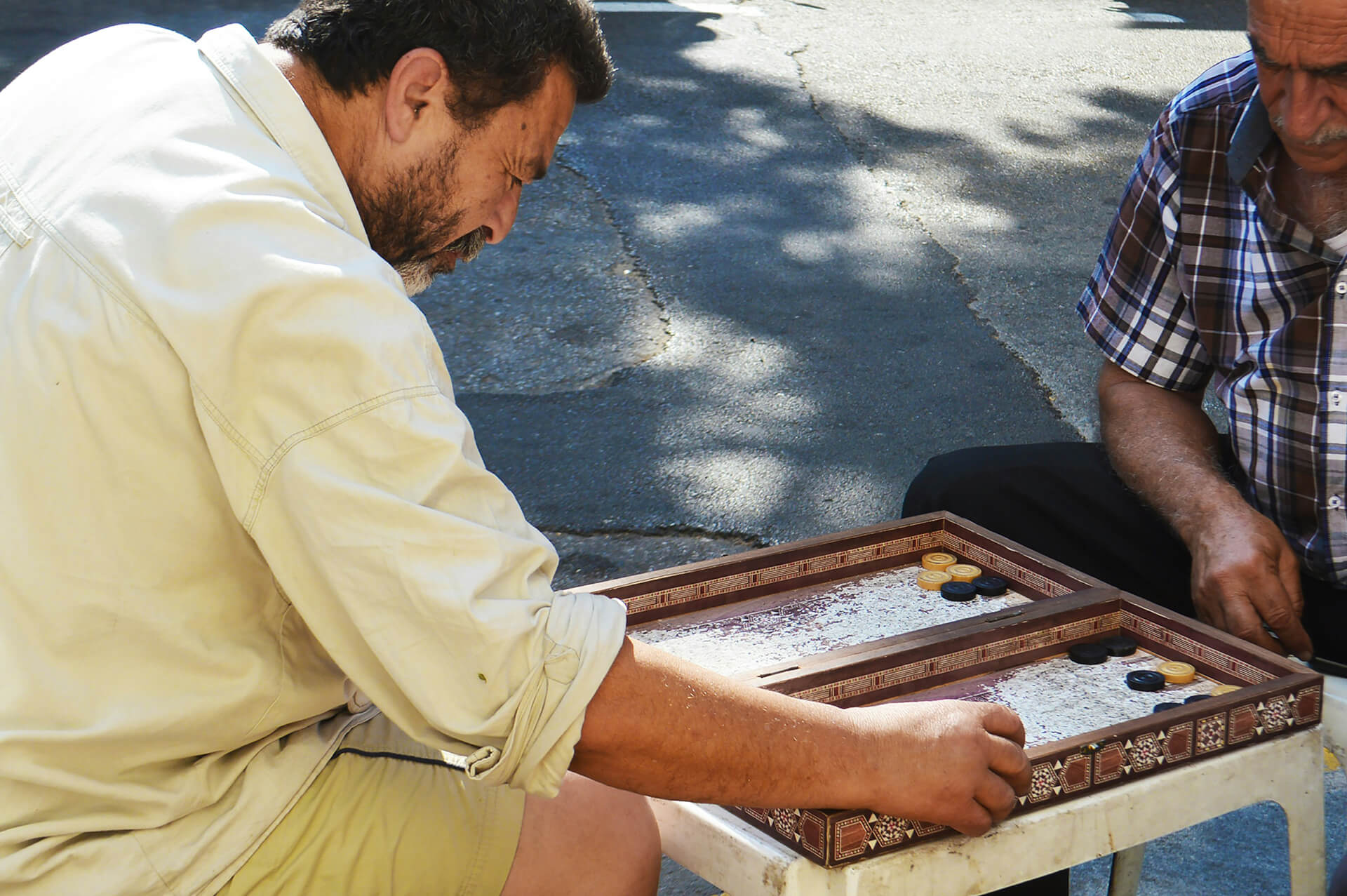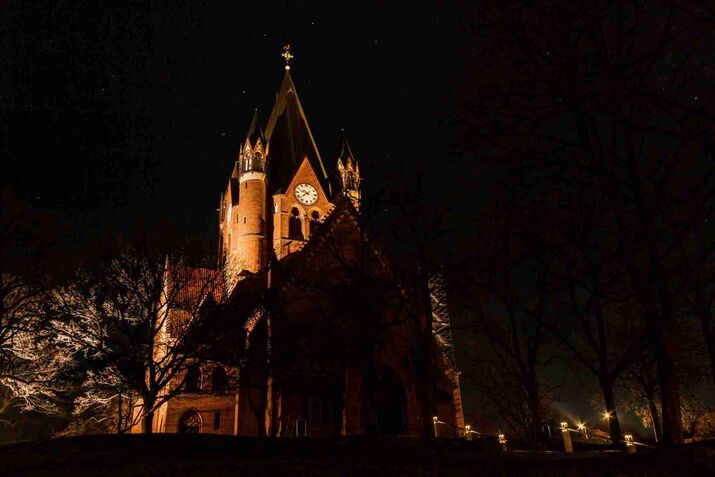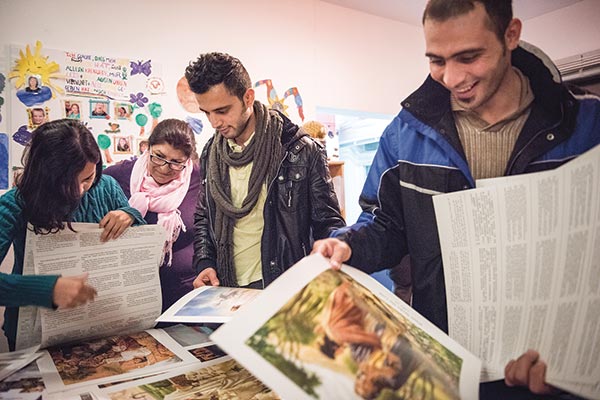Christianity in the Middle East: Stories of Faith in Unlikely Places
Discover how Christianity in the Middle East is thriving through unlikely leaders, powerful testimonies, and everyday discipleship in the midst of conflict.

Introduction
The story of Christianity in the Middle East is one of paradox. On the one hand, statistics and headlines often paint a grim picture - shrinking congregations, migration, and persecution. On the other hand, beneath the radar, Christianity is quietly growing through small discipleship groups, unexpected leaders, and acts of extraordinary faith. The movements reshaping the region are not led by platforms or celebrities but by ordinary men and women whose lives have been transformed by the gospel. Their stories demonstrate that Christianity is not disappearing in the Middle East; it is being reborn in ways that echo the earliest Christian communities. This article takes a deeper look at those stories and what they reveal about faith in unlikely places.
A Faith Forged in Conflict
The Middle East has been marked by conflict for decades. Lebanon’s civil war (1975–1990) divided families and communities, leaving scars still visible today. Syria’s civil war displaced millions, while Iraq’s invasion and subsequent insurgencies decimated one of the oldest Christian populations in the world. In each of these contexts, survival became the priority. Yet even in the midst of violence, faith found a way to flourish.
Nadim Costa, president of NEO US, recalls his own childhood in Lebanon. At age eleven, he woke to the sound of gunfire. “We’d go to school in the morning and then the fighting started in the afternoon,” he said. Living under constant threat reshaped his view of faith. For Nadim, Christianity was never a matter of comfort or tradition; it was a lifeline. Initially, he followed Jesus because he “didn’t want to go to hell” while watching friends die around him. Over time, however, that fear-based beginning grew into a deeper understanding of God as present, relational, and transformative.
His story mirrors countless others across the Middle East. Faith forged in conflict is often stripped of cultural baggage and reduced to its essentials: trust, courage, and hope.
Religion Versus Relationship
In Lebanon and other parts of the region, religion is deeply tied to politics and identity. Government seats, military posts, and even ID cards are distributed based on sectarian affiliation. For many, religion becomes a marker of tribe rather than a matter of personal conviction. Nadim himself wrestled with this tension, asking, “If all it takes is showing up in church, paying tithes, and following rules, why should I die for that?”
This disillusionment with institutional religion has led to a growing emphasis on a personal relationship with God. Christianity in the Middle East is increasingly being lived out not as a political category but as a daily encounter with Christ. The shift from religion-as-identity to faith-as-relationship has opened the door for grassroots discipleship movements to thrive.
God Chooses the Unlikely
A recurring theme in Middle Eastern Christianity is God’s use of unlikely leaders. “The reason God chooses the unlikely is because the likely are too busy doing their own thing,” Nadim explains. In a culture that prizes education, hierarchy, and status, God’s choice of ordinary people to lead movements of faith is a striking reversal.
One story illustrates this vividly. A Druze militia leader in Syria, hardened by years of conflict, began having recurring dreams of Jesus. During one battle, a missile landed beneath him but failed to explode. Surviving unharmed, he recalled the dream’s promise of protection. This experience led him to faith. Today, he plants Discovery Bible Study (DBS) groups across Druze villages.
In Bulgaria, a former mixed martial arts fighter began combining physical training with Bible study. Students who came to learn combat skills found themselves reading Scripture as part of the regimen. In Egypt, a grocer was transformed after a disabled man entered his store and told him, “Jesus loves you”. These leaders are not polished pastors or theologians. They are ordinary individuals whose lives have been interrupted by God.
The Marketplace as Mission Field
Western models often elevate the pulpit as the central space for ministry. In the Middle East, however, the marketplace is the primary mission field. Shops, cafes, and refugee camps become places where faith is shared and lived. A simple phrase like “Can I pray for you?” can open profound conversations.
The Egyptian grocer’s story highlights this. Initially skeptical when told “Jesus loves you,” he eventually joined a local DBS group. Over time, he became a follower of Christ and now shares his faith with others in his community. What began with a single sentence in a store became the seed of a growing movement.
For missions leaders like Nadim, this represents a key shift. He insists on, “I want to see ministry in the marketplace. Make ministry livable, not theoretical,” he insists. In a region where formal churches may be restricted or distrusted, the marketplace becomes the natural home of faith.
Numbers That Tell a Bigger Story
NEO’s work demonstrates the scale of these grassroots movements. With 225 full-time staff and 7,500 volunteers across the Middle East, the organization supports a vast network of over 60,000 DBS groups. These groups operate in contexts ranging from urban neighborhoods in Beirut to rural villages in Syria, from refugee camps in Jordan to underground communities in Iraq.
While statistics can never capture the full impact, they reveal the breadth of transformation. Each volunteer represents a ripple effect, touching families, neighbors, and workplaces. Unlike traditional church growth measured in pews and buildings, this movement grows through multiplication: every believer becomes a potential leader.
Disability Ministry: Restoring Dignity
Perhaps the most countercultural witness of Christianity in the Middle East is its ministry among people with disabilities. In Islamic culture, disability is often viewed as a curse. Families sometimes hide disabled members for years. NEO staff and volunteers have encountered people who had been confined to back rooms for decades.
By serving these individuals - bathing them, feeding them, and treating them with dignity - Christians offer a powerful witness. Families who once hid disabled members now embrace them. In many cases, entire households have come to faith after experiencing this compassion. These acts of mercy recall the early church, when Christians distinguished themselves by caring for the sick and abandoned in a society that discarded them.
Living to Be Forgotten
One phrase that resonates deeply in Middle Eastern missions is borrowed from the underground church in China: “Live in such a way to be forgotten.” This motto reflects the humility of movements that prioritize faithfulness over recognition. In a region where persecution is real, anonymity protects leaders. But it also keeps the focus on God rather than personalities.
This stands in stark contrast to Western “celebrity pastor culture.” In the Middle East, the goal is not to build a platform but to multiply disciples. Leaders fade into the background while communities carry the mission forward.
Historical Parallels
The growth of Christianity in the Middle East today mirrors its expansion in the Greco-Roman world. Historians note that early Christians grew not through political power but through acts of compassion. During epidemics, they cared for the sick while others fled. They adopted abandoned infants and honored women in a society that often devalued them. Their countercultural witness drew thousands into the faith.
Today’s Middle Eastern Christians embody the same pattern. By serving the marginalized, forgiving enemies, and living humbly, they demonstrate a faith that thrives under pressure. What appears fragile from the outside is, in reality, resilient and deeply rooted.
Lessons for the Global Church
The witness of Middle Eastern Christians carries profound lessons for the global church:
- Faith Is Relational, Not Institutional: Christianity thrives when people encounter God directly, not merely through structures or rituals.
- Leadership Is Shared: Ordinary believers are driving growth. We can learn from this decentralized model.
- Compassion Is Evangelism: Serving the marginalized is not separate from missions; it is central to it.
- Humility Multiplies Movements: When leaders live to be forgotten, faith spreads freely without being tied to personalities.
Conclusion
The story of Christianity in the Middle East is not one of decline but of surprising growth in unlikely places. From Syrian militia leaders turned disciple-makers to Egyptian grocers transformed by a single sentence, from disabled individuals restored to dignity to thousands of volunteers serving across the region, the movement is vibrant and resilient.
For Western readers, these stories challenge assumptions. They remind us that buildings, platforms, or programs do not sustain Christianity, but rather ordinary people making themselves available to God and others. In the marketplaces and refugee camps of the Middle East, faith is being rediscovered in its simplest, most powerful form - and it has much to teach the rest of the world.

.webp)

